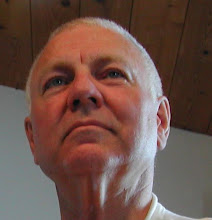Back in the days before cable television, Ottawa was an unusual place on a Saturday night.
Just far enough from each of Canada's intensely rival non-capitals, sport fans had a choice between watching the Montréal Canadiens or the Toronto Maple Leafs on CBC's Hockey Night in Laurentia because neither game was blacked out in the Ottawa area.
An even more remarkable opportunity arose on those rare Saturday nights when the two giants played each other.
Riveting and highly partisan play-by-play was available from announcers René Lecavalier in French for Montreal or Foster Hewitt in English for Toronto, delivered over separate broadcast feeds. They were nonetheless based on a single on-ice reality, emanating from a single venue.
That profound lesson in unified field theory lies at the root of much Canadian impatience with unilingual North America's failure to fathom 'Other'. Multilinguals can generally pound each other to a pulp during a debate, or a debacle, yet sincerely share a joke afterwards. As I have discussed in previous posts, however, can you imagine holding a genuine world championship in health-care, or baseball, based on alternate narratives coming from Washington and Havana?
Then there is Jerusalem.
Talk about two communities who cannot abide each other's narrative.
What is the proper role of the intellectual in society if not to constantly observe the playing field, analyse our varying narratives and either trace our roots back to the common source, or provide a third way... preferably forward?
Isn't that the philosophical basis of freedom? One, you are stuck. Two, is a dilemma. Choice, begins at three.
For the moment, intellectual debate in Washington has stopped at one, while Tel Aviv is in a state of perpetual oscillation.
That leaves new, innovative, choiceful options on so many global issues more likely to come from Mumbai, Shanghai, Rio ... or Iqaluit.

No comments:
Post a Comment